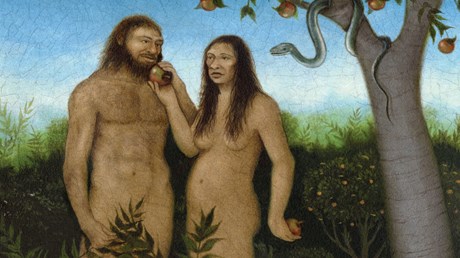The center of the evolution debate has shifted from asking whether we came from earlier animals to whether we could have come from one man and one woman.

Secularist brows furrowed in 2009 when President Obama chose prominent atheist-turned-Christian Francis S. Collins to be the director of the National Institutes of Health (NIH). Under the Los Angeles Times headline "Fit to Head the NIH?," Skeptic magazine's Michael Shermer fretted that Collins's beliefs might somehow corrupt America's biggest biomedical research agency. In a New York Times piece, atheist Sam Harris was similarly "uncomfortable," fearing in particular that a Collins administration might "seriously undercut" fields like neuroscience. Jerry Coyne, a University of Chicago expert on evolution, carped that the nominee's "scary," "bizarre," "inane," and "snake oil" ideas "pollute his science with his faith."
Nonetheless, Collins won unanimous U.S. Senate confirmation, thanks to sterling achievements in biomedical research and leadership of NIH's human genome research. Under Collins, this historic effort in 2003 finished mapping the complete sequence of several billion DNA subunits ("bases") and all of the genes that determine human heredity.
Collins, one of the most eminent scientists ever to identify as an evangelical Christian, staunchly defends Darwinian evolution even as he insists on God as the Creator. And he now stands at the epicenter of a dispute that increasingly agitates fellow believers. At issue: the traditional tenet (as summarized in Wheaton College's mandatory credo) that "God directly created Adam and Eve, the historical parents of the entire human race."
Collins's 2006 bestseller, The Language of God: A Scientist Presents Evidence for Belief—which so vexed …
Source: Christianity Today Most Read